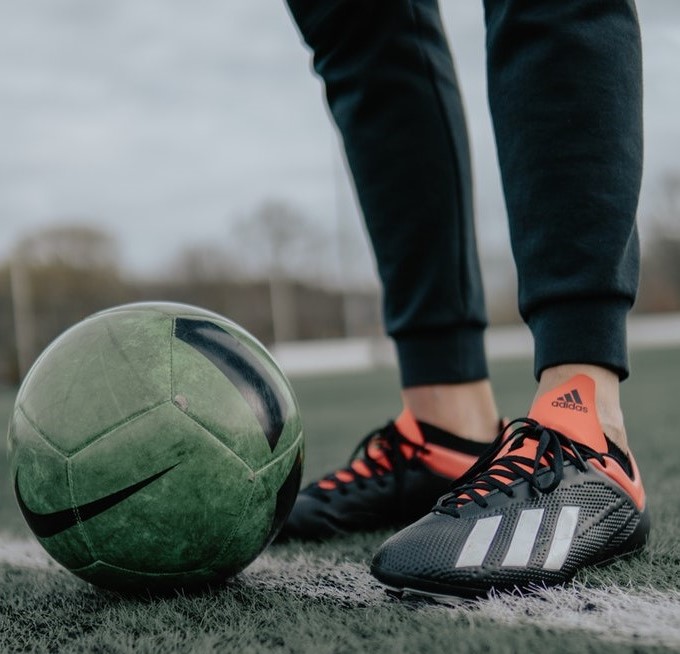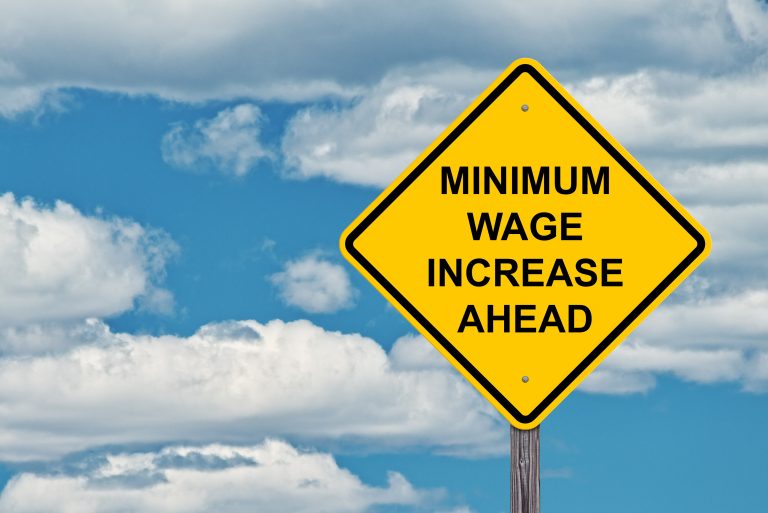Equal pay is a major talking point in the world of women’s sports – and public opinion on the issue is often divided.
With the Women’s World Cup 2019 now underway, conversation around the fact that female athletes are paid less than their male counterparts has inevitably ignited once more. Whenever this happens, the well-documented gender pay gap in football tends to be rationalised – and often shrugged off – by the fact that women’s football generates less money.

However, for many, this justification doesn’t hold up. In fact, according to FIFA, commercial revenues from the Women’s World Cup cannot be separated out from other FIFA competitions, as rights are often sold as a package.
For proponents of pay equality in the sport, the recent 13-0 win by the US team over Thailand has spoken to the ability of women in the sport and provided further cause to address the pay parity between male and female players.
Differences in prize money
This year, the prize money for winning the FIFA Women’s World Cup stands at £3.2m – double the amount awarded in 2015. In total, taking into account the prize money awarded in various sums to other teams depending on how far they get in the competition, FIFA is set to award £24m to the teams competing in the women’s tournament.
While this is no small sum, it is ten times less than the prize money on offer for the 2018 men’s World Cup, where the total amount awarded was a whopping £315m.
This discrepancy between the money involved in men’s and women’s football also extends to the amount of funding received. This year, each team competing in the Women’s World Cup received approximately $800,000 in preparation costs and club compensation, while the men’s teams received $1.5m in the lead up to the last World Cup.
Money per minute
Research into the annual earnings of top male and female sporting figures has made the extent of the gender pay gap in professional football even more apparent. The study divided athletes’ basic salary by the number of minutes they spent competing in their sport to give their “earnings per minute figure”.
This revealed that Lionel Messi earned a staggering £15,048 for every minute he spent on the pitch, while Alex Morgan, one of the most gifted and highly-paid female players, earned £431 per minute – which, while still substantial, works out at 35 times less.
Pay has increased… but so has the gap
While many are encouraged by the fact that the prize money for the women’s tournament has doubled this year – referring to it as a “step in the right direction” – others have pointed out that the gap in prize money between the men’s and Women’s World Cup has actually increased.
FIFA has attempted to allay concerns, claiming that the organisation is making significant progress in advancing the women’s game.
Sarai Baremen, FIFA’s Chief Women’s Football Officer, has claimed that prize money alone doesn’t reveal the whole picture, saying that it’s “only a small part of the investments FIFA is doing for the development of women’s football around the entire world”. In fact, over the next three years, the organisation has revealed plans to invest $400m-$500m directly into the women’s game.
A legal issue?
From a legal perspective, men and women are entitled to equal pay for equal work, or, in some cases, different types of work, but which are considered equivalent.
The most straightforward type of equal pay claim is a so-called “like work” claim, where both the claimant and their nominated comparator carry out the same role. An employee could also bring a claim if they are able to show that their jobs have been rated the same under a job evaluation scheme or that they are of the same intrinsic value to the employer.
US women’s soccer team strike back
Just months before defending the Women’s World Cup title, the US women’s national team initiated legal action against the US Soccer Federation (USSF) over unequal pay and working conditions.
The lawsuit, filed with the US District Court in Los Angeles, stated: “Despite the fact that these female and male players are called upon to perform the same job responsibilities on their teams and participate in international competitions for their single common employer, the USSF, the female players have been consistently paid less money than their male counterparts.
This is true even though their performance has been superior to that of the male players, with the female players, in contrast to male players, becoming world champions.”
This refers to the fact that the women’s team have won the Women’s World Cup three times – while the best finish for the men’s team remains third place in 1930.
Exercising the usual argument, the Federation have attempted to justify the discrepancy in pay between women’s and men’s soccer players by claiming that it is based on differences in the “aggregate revenue generated by the teams”, not sex.
It explained that the teams are subject to “fundamentally different pay structures for performing different work”.
Changing the focus
However, while the media has continued to highlight issues over pay and given female athletes a platform to voice their frustrations, not all women feel the same.
England forward Toni Duggan has recently voiced her reservations about the widely-held belief that female players deserve equal pay. Speaking on the situation in the US, Duggan told the Guardian that she felt legal action was justified “because they’re more successful than their men’s team.” However, when asked whether the UK should follow suit, she replied: “No. Because we don’t bring in the money that the men do – we’re not as successful as them yet. They bring in a lot more money than us commercially and are more successful.”
She explained: “I believe the girls should be better paid but not the same as the men.”
Rather than focusing on pay, Duggan believes that investment should be made into increasing the status of women’s football. “I don’t want to just start with money – we need pitches, facilities,” she said. “Equality for me is having a pitch to play on and hot showers in the changing rooms, before we talk about the money we get.”
More work to be done
Whatever side of the argument you’re on, it’s clear that the world of professional sports still has a long way to go in order to bridge the pay gap between male and female athletes – and some sports have much more work to do than others.
It’s been almost 50 years since the Equal Pay Act was introduced, and while this should, in theory, serve to ensure “equal pay for equal work”, history has proven that successive governments have failed to enforce it. Pressure is therefore mounting to find a more effective solution – causing the Equalities Office to look mandatory gender pay reporting for smaller firms and the head of the Equality and Human Rights Commission calling for immediate fines for companies that fail to comply.

James Tamm
Director of Legal Services
Expert Comment
Equal pay continues to be an issue not just in sport but across the board. The latest gender pay gap reporting shows that more than a quarter of companies pay women on average over 20% less than men, so this is something every employer should look to address.
I don’t confess to be an expert in US law, but if this was a case over here involving the English FA, it would probably fall to be dealt with as a “like work” case. If I were advising the FA, I wouldn’t waste too much time arguing about whether women’s and men’s football was “like work”. Instead, an employer in an equal pay claim can always avoid liability by arguing that there is a material factor other than sex explaining the pay difference.
There would probably be a number of material factors available as a defence, including the huge difference in commercial value between the men’s and women’s game. It’s a different jurisdiction, but this seems to be what the US football federation is using to argue against the claim they are facing. Whether the claim will be successful awaits to be seen.









